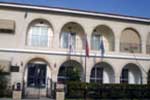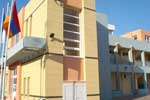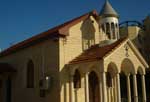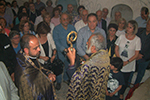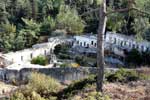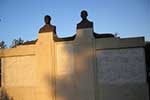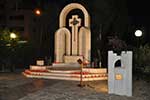Sassounian Column

OBAMA S ELECTION FORCES TURKEY TO RETHINK ITS DEMANDS FROM ARMENIA
Turkey has blockaded Armenia for the last 15 years with the vain hope that this would force Armenian leaders to make concessions to Ankara on several fronts: Abandon the pursuit of genocide recognition, acknowledge Turkey's territorial integrity, and accept Azerbaijan's jurisdiction over Artsakh (Karabagh). In return, Turkey offered to lift the blockade and establish diplomatic relations with Armenia.
,
Armenia steadfastly rejected these unacceptable Turkish demands, despite the economic hardships its people endured as a result of the joint blockades imposed by Turkey and Azerbaijan.
,
Frustrated with the growing number of countries acknowledging the Armenian Genocide in recent years, the Turkish government embarked on a new scheme to try and split Armenia from the Diaspora, hoping to undermine their joint efforts for the international acknowledgment of the Armenian Genocide.
,
In recent months, because of the convergence of several factors -- internal turmoil in Armenia following the presidential elections and increasing pressure on Yerevan by Western countries and Russia to reconcile with Turkey -- Armenia's newly elected President offered to accept the Turkish proposal to establish a joint historical commission on the Genocide, but only after Turkey would lift its blockade and establish diplomatic relations with Yerevan.
,
Shortly after Pres. Serzh Sargsyan's declaration, the Russian-Georgian war briefly disrupted the transport of goods between Black Sea ports and Armenia, making the Armenian government more eager to seek opening of the Turkish border, which would serve as an alternate supply route. Moreover, Armenia expressed an interest in joining the "Caucasus Stability and Cooperation Platform," which was proposed by Pres. Abdullah Gul ostensibly to create a closer relationship between Russia, Georgia, Azerbaijan, Armenia and Turkey. Pres. Gul's initiative would indirectly help Armenia to counter Azerbaijan's attempts to isolate and exclude Yerevan from all regional projects.
,
Turkey enthusiastically welcomed Armenia's cooperative gestures. As a result, Pres. Gul accepted Pres. Sargsyan's invitation to come to Yerevan - the first such visit by a Turkish leader - to watch a soccer match between the national teams of the two countries. The visit brought worldwide accolades to the Turkish president and raised Turkey's international stature at a time when the country was desperately seeking the votes of U.N. members to win a coveted Security Council seat.
,
Soon however, the Turkish scheme hit a series of snags. Armenia and Turkey could not agree on the details -- subject matter, composition, and timing -- of the proposed joint historical commission. Turkey, on the other hand, was in a rush to set up the commission before the start of Barack Obama's presidency on January 20, 2009, in order to discourage the incoming U.S. administration from considering the acknowledgment of the Armenian Genocide.
,
Meanwhile, Armenian officials were reluctant to take action on the proposed commission, until Turkey opened the border first and established diplomatic relations with Armenia. The Turkish government apparently underestimated the resolve of Armenia's leaders to stick by these two preconditions and misjudged their determination to withstand Western pressures on this issue.
,
After these misjudgments, the Turks made matters worse by insisting that Armenia agree to return to Azerbaijan a portion of the territories bordering Artsakh, before Ankara would agree to lift the blockade. This unacceptable condition threw out of the window any possibility of rapprochement between the two countries in the immediate future.
,
Complicating matters further, two new incidents last week proved that Turkish attempts to drive a wedge between Armenia and the Diaspora on the genocide issue had failed. Pres. Sargsyan, in an interview with the German newspaper Frankfurter Allgemeine Zeitung, agreed with Diaspora leaders that the joint historical commission was "absolutely unnecessary." He stated: "We do not think that anything can be achieved by it. We want to establish diplomatic relations between the two countries, open the borders without any preconditions, and afterwards, through an intergovernmental process, we can discuss all issues pertaining to the neighboring countries. We do not consider the recognition of the Genocide by Turkey as a precondition to establishing relations. We desire the latter, but not at any cost. In the past, European countries too did not establish historical commissions in order to develop normal relations. Such an initiative could also mean an attempt to mislead the international public, especially when it is a multi-year process."
,
In another setback, the Turkish newspaper Zaman alleged that Armenia's Foreign Minister Edward Nalbandian had questioned the value of more countries recognizing the Armenian Genocide, prompting him to issue a statement refuting the Turkish report. "The recent news by the Turkish press ascribed to Armenian officials about the international recognition of the Armenian Genocide is distorted and presented upside down. I have stated many times and I want to repeat again that Armenian officials have never expressed and will never express an idea in favor of suspension of the process of international recognition of the Armenian genocide. Moreover, Armenia cannot tolerate any expression of Armenian Genocide denial," Mr. Nalbandian stated.
,
Significantly, these setbacks occurred at a time when Turkey's leaders are expressing great anxiety over promises made by President-elect Obama to recognize the Armenian Genocide. In fact, during his last week's trip to the United States, Prime Minister Recep Erdogan repeatedly expressed his serious concern about Mr. Obama's announced intentions on the genocide. In fact, Turkish and American officials have advised Mr. Erdogan that Pres. Obama would most probably acknowledge the Armenian Genocide and the Congress could pass a resolution on this issue, unless Turkey immediately takes the bold step of lifting the blockade and establishing diplomatic relations with Armenia.
,
Currently, the Turkish Prime Minister is in the process of gauging the intentions of President-elect Obama on the Armenian Genocide by communicating with his circle of close advisors. Should he determine that Mr. Obama is intent on carrying out his campaign promises on this issue, Mr. Erdogan could then quickly open the border and establish diplomatic relations with Armenia, in order to preempt any official action by the U.S. President and/or the Congress. However, should Mr. Erdogan discover that Pres. Obama is hesitant on keeping his campaign promises, the Turkish side would then continue making stiff demands from Armenia.
,
Under these circumstances, Armenia's leaders are in no particular rush. They can patiently wait until they see what position the next U.S. President would be taking on the Armenian Genocide. In any case, the Armenian side has nothing to lose by waiting. On the contrary, by biding its time, the Armenian government could well avoid making concessions on Artsakh and refuse to establish the "unnecessary" historical commission, while getting Turkey to lift the blockade.
By Harut Sassounian
Publisher, The California Courier






